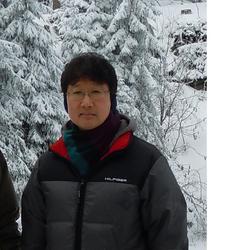 Prof. Ph.D.
Prof. Ph.D.Joon Kim
Principal InvestigatorPhone: +82 (2) 880 4663 (or 4664)
Fax: +82 (2) 312 5691
Room: Building 3, Room 180
e-Mail: joon(at)snu.ac.kr
Seoul National University
Complex Systems Science Lab.
Seoul, 151-921
Korea
http://www.useoul.edu/
Complex Systems Science Lab.
Department of Landscape Architecture and Rural System Enginieering
College of Agriculture and Life Science
First Step Toward Bridging Ecological and Socio-Economic Systems: Linking Thermodynamics, Complexity, and Sustainability
Abstract: Challenges related to achieving sustainable social-ecological systems (SES) are transforming science and its role in society. Over the past few decades, integrated sciences such as sustainability science and complex systems science have emerged as fields of research and education, which transcend disciplinary boundaries and focus on understanding of the dynamics of complex SES. A social-ecological system is a combined system of social and ecological components and drivers that interact and give rise to phenomena, which cannot be understood on the basis of social or ecological considerations alone. A pivotal hinge is therefore needed to bridge social systems and ecological systems. Based on the concepts of openness, directionality, connectivity, and complex dynamics under the framework of nonequilibrium thermodynamics, the state of both systems could be described as process networks of feedback loops and their related time scales. Ruddell and Kumar (2009) argued that such a process network can describe the magnitude and direction of the flow of energy, matter, and information among the different variables in complex, open, dissipative systems. Identification and characterization of such network architecture may provide us with scale-free approaches to integrating system components and drivers having different dimensionality and complexity. As a first step in this direction, we have attempted to delineate such a process network in ecohydrological systems by analysing the multivariate time series data obtained from temperate forest ecosystems in Korea and based on information flow statistics.
Keywords: sustainability, social-ecological system, complexity, ecohydrological system, process network, information theory, feedback, adaptation
Project description in detail from proceedings of 2011 TERRECO Science Conference GAP
>> Projects
